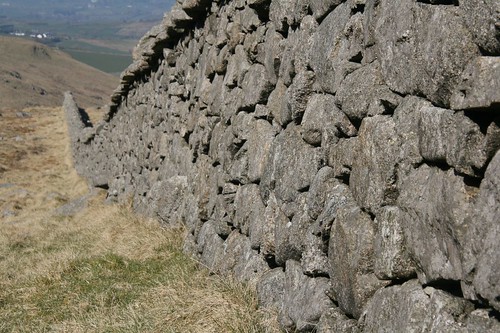|
Harry
Joe did not fit the stereotypical profile of immigrants passing
through the tumultuous and noisy reception centre of Ellis
Island. He was older than most new
arrivals at 37 years. In
fact
he
clipped-off
some years when being interviewed
stating his age as 32.
This was probably to avoid suspicion or awkward questions, as he
was a man who was always wary of authority. He
will have
realised
the necessity of portraying oneself as just another ill-educated,
physically fit young worker on his way to a life of industrious
toil. In reality Henry J had been an immigrant to New Zealand
at age 14. He went, in place of his
older
brother,
James,
on a £15 ticket provided by his maternal uncle Nicholas Quinn. The
substitution came about in circumstances peculiar to the age. It
was the habit and custom at that time in Ireland to arrange an
“Emigrant's Wake” before departure. This involved a get-together
by friends and relations at ones home, culminating in tearful
cries of farewell, as it was unlikely those present would ever
see you again, at least in this world. That was a fine concept
but to heighten the drama it was the practise for the
prospective passenger to be laid out in a coffin before communal
prayers. Henry’s brother at that point in the proceedings took to
his heels and ran off.
It was then that instead of wasting the ticket that the bold
14-year old Harry Joe
volunteered. It
must have seemed a wonderful opportunity to Harry Joe who was
only at home due to his dislike of life as a boarder in Belfast
where his parents, who were of moderate means, had dispatched
him to be educated by the Christian Brothers. The Brother’s
philosophy and religious beliefs did not agree with Harry
Joe in
spite of his abilities as a prize winning pupil. So after a
voyage of some months in a sailing ship from Greenore, a nearby
port, he arrived in New Zealand.
On
the Canterbury plains of the South Island, he found his new life
was as a shepherd in the company of only some dogs and a horse
placed in sole charge of one thousand acres and one thousand
woolly backs. This was certainly not what Harry Joe had expected
or desired.
|
As a young man, Harry Joe was certainly well-cared
for in New Zealand. Several of his mother's brothers had
settled in the area around Waimate and had become reputable
pioneers of the area. When his Uncle Nicholas Quinn died
in 1903 it must have been expected that Harry Joe would make his
life in in New Zealand as Nicholas made Harry Joe generous
bequests in his will. These included shares in
Canterbury Farmers Cooperative Association Limited and Timaru
Milling Company and an acre of land in Makikihi.

A painting of
"The White Haired Lass" by
Capt. James Doyle
(Harry Joe's brother). |
Within a few years of losing his Uncle Nicholas, Harry Joe
received the news that his father James Doyle had died back in
Kilkeel. As a result, he decided to return home and try his hand
as a fisherman.
Harry Joe worked
hard
trading around the coasts
of the British Isles. but despite nine years of
effort,
he failed
to make it “big time” in the sea-freight business. On the
contrary, his brother
- the one who had decided New Zealand was not for him - was now
"Captain" James. A talented, prosperous and well-respected
seaman. |
|
 |
|
|
So
now the wheel of life had turned again and it was on that fine July
morning that Harry Joe
set out on a new phase of life as a mine employee.
Many of
Harry Joe's neighbors
back in Mourne, supplemented their meager
farm
income,
especially
in the winter,
by cutting granite pieces from the sides of the mountains. Their
miniature quarries can still be seen
today.
It is hard to realise the fortitude of someone who might labour for
freezing cold days on end in the solitude of the mountains hewing
out pieces of granite kerbstone. They were highly-skilled and could
split the rock with simple hand-tools. It was not unknown for the
day to end with the loss of the stone, and any income,
when in
the course of manually dragging it down the mountainside on a
homemade sled it tumbled and broke before it was safely stacked.
|
After stacking
the stone was
collected by
horse and cart and subsequently shipped
to Belfast or more often
abroad. Some of the made it’s way to the City of
Liverpool, where the entire street network was lined by
Mourne granite. This background experience,
determination and skill guaranteed Mourne men a warm
welcome in the mines of Butte.
Harry
Joe
of course, hadn’t the experience of manual labour or the quarrying/mining
skills of his compatriots.
Refusing to be deterred by
this, he calculated that he could
profit by
utilising carpentry skills, acquired during his seafaring days,
to
gain employment as a
'Bulkheader'.
Bulkheader's were
the men who were employed in the continuous job of inserting
'permanent'
timber supports into the mine tunnels. The face miners put in
temporary shoring as they dug out the copper ore. In this job away
from the face, Harry Joe
will have had some escape from the dust that
filled the miners’ lungs.
It is somewhat ironic that
Harry Joe's lack of experience kept him
away from the more dangerous jobs on the face that cost so many men
their lives. |

Mourne
Granite
 
|
|



